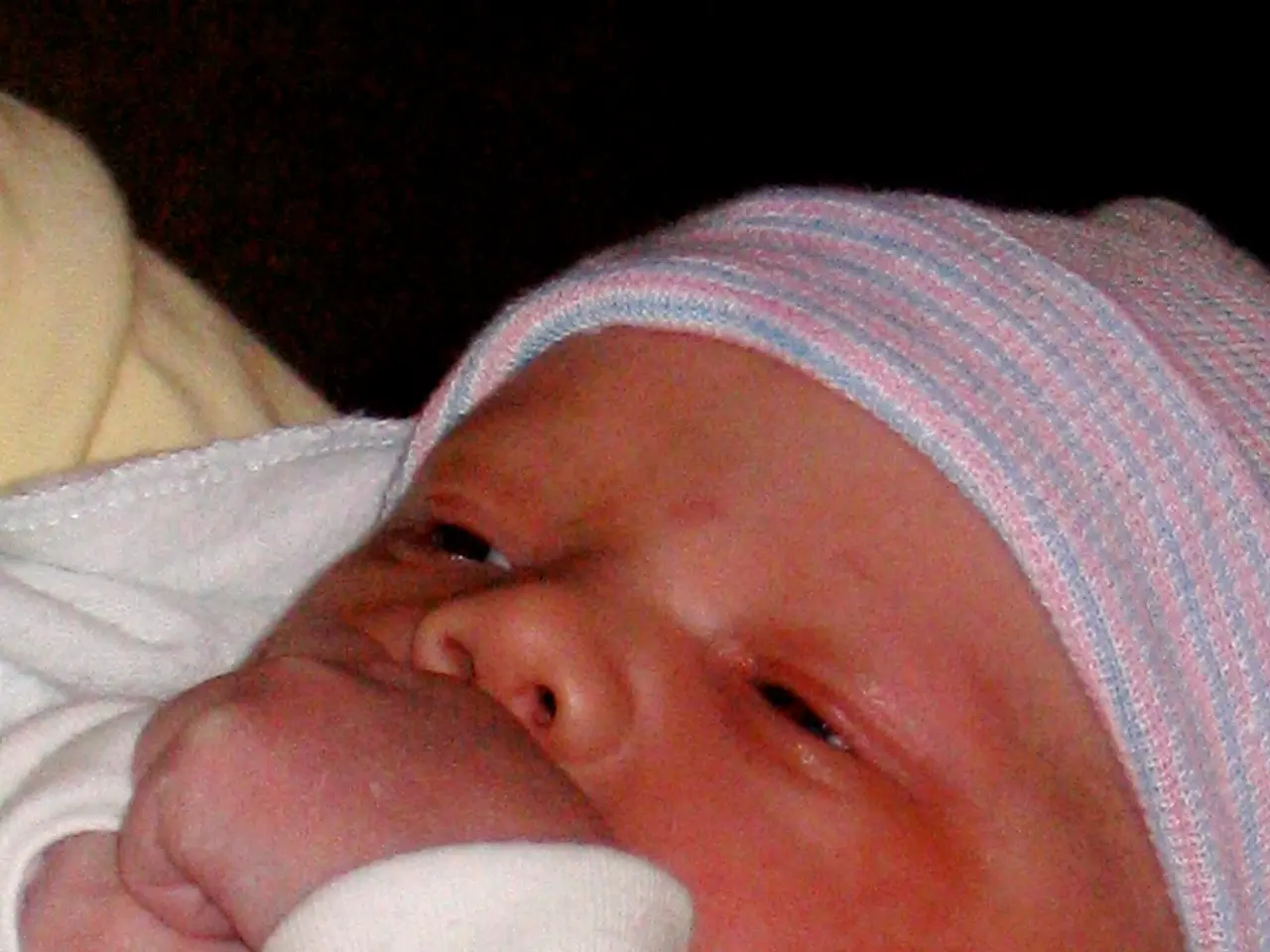Essential Skin Care for Newborns: Important Information for Nigerian Parents
Protecting Newborn Skin in Nigeria's Climate: A Guide for Parents
In Nigeria, where the climate varies between hot, dry seasons and rainy seasons, it's essential for parents to adapt their skincare routine to ensure their newborn's delicate skin remains healthy and protected. Here are some crucial skincare practices and tips tailored to the local climate and cultural context.
Embrace Hypoallergenic and Natural Products
Choose mild, fragrance-free, and chemical-free products such as hypoallergenic soaps (e.g., Chico soap) and natural oils like palm kernel oil or child-safe moisturizers. These minimize irritation and accommodate sensitive newborn skin.
Regular Moisturizing
Apply natural, child-friendly moisturizers immediately after bathing to lock in moisture and prevent dryness, which is important in Nigeria’s hot climate that can cause skin dehydration.
Address Heat-Related Rashes Promptly
Heat and humidity in Nigeria can cause newborn rashes. Applying remedies like sudocreme when heat rashes begin helps soothe and heal without harsh chemicals.
Maintain Gentle Hygiene
Bathe newborns with warm water and mild soaps to keep skin clean but not stripped of natural oils, protecting the skin barrier while avoiding harsh scrubbing.
Avoid Over-Bathing
Over-bathing can dry out the skin, so 2-3 times per week is usually sufficient, but daily gentle rinsing with water can be done if needed.
Protect from Environmental Exposure
Shield newborn skin from direct sun exposure, excessive dust, and sweat by using loose, breathable cotton clothing and shaded environments when outdoors.
Respect Cultural Practices with Caution
While some local traditions may involve applying homemade remedies or oils, parents should ensure these are safe and free of irritants, ideally consulting healthcare providers to avoid skin damage.
Monitor Skin Regularly
Check for any signs of irritation, rashes, or infection early to seek timely treatment, especially heat rashes and eczema which can be common in hot and humid climates like Nigeria’s.
Sun Protection
In hot and dry seasons, use gentle, fragrance-free cleansers to cleanse the baby's skin. When outdoors, dress your baby in lightweight, protective clothing that covers their arms and legs. Opt for physical sunscreens containing zinc oxide or titanium dioxide, as they are gentle on baby's skin. Avoid sunscreens with chemicals such as oxybenzone, as they can irritate your baby's skin.
Rainy Season Precautions
During the rainy season, protect newborns from rain and cool temperatures by dressing them in warm, dry clothing and using umbrellas or portable shelters when going outside. Keep the nursery well-ventilated and at a comfortable temperature to prevent skin dryness or excessive sweating. Avoid using talcum powder as it can cause respiratory issues if inhaled by the baby.
By following these guidelines, Nigerian parents can ensure their newborns' skin remains healthy and protected, adapting their skincare routine to the hot, humid Nigerian environment combined with awareness of cultural skincare practices. If parents suspect their newborn may have allergies or sensitivities, it is crucial to consult with a healthcare professional.
- In Nigeria's varied climate, it's essential for parents to choose hypoallergenic, natural products for their newborn's delicate skin, such as mild soaps like Chico soap or natural oils, to prevent irritation.
- For the prevention of dryness, parents should apply natural, child-friendly moisturizers immediately after bathing in Nigeria's hot climate.
- Newborn rashes caused by heat and humidity in Nigeria can be addressed by using remedies like sudocreme for soothing and healing the affected skin.
- When bathing newborns, parents should use warm water and mild soaps to maintain gentle hygiene without stripping their skin of natural oils.
- Over-bathing should be avoided as it can lead to dry skin, with 2-3 baths per week being sufficient, while daily gentle rinsing with water can be done if required.
- To protect newborn skin from direct sun exposure, excessive dust, and sweat, parents should dress their babies in loose, breathable cotton clothing and shaded environments when outdoors.
- Some local traditions may involve applying homemade remedies or oils, but parents should ensure these are safe and free of irritants, ideally consulting healthcare providers to avoid skin damage.
- Parents should regularly monitor their newborn's skin for any signs of irritation, rashes, or infection, seeking timely treatment for common issues like heat rashes and eczema in hot and humid climates like Nigeria's.
- During the rainy season in Nigeria, parents should protect newborns from rain, cool temperatures, anddrafts by dressing them in warm, dry clothing and using umbrellas or portable shelters when going outside. In addition, keeping the nursery well-ventilated and at a comfortable temperature is crucial to prevent skin dryness or excessive sweating. It is advised to avoid talcum powder as it can cause respiratory issues if inhaled by the baby.




